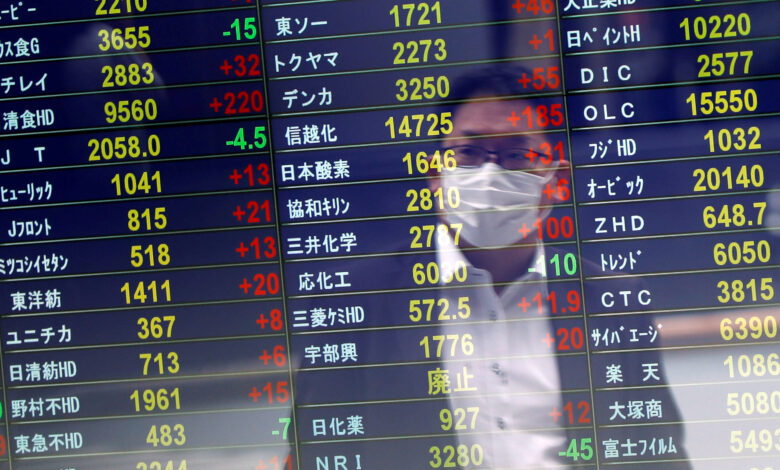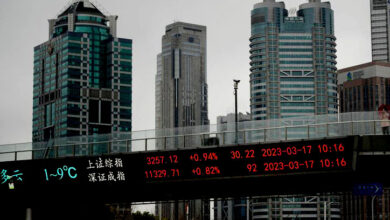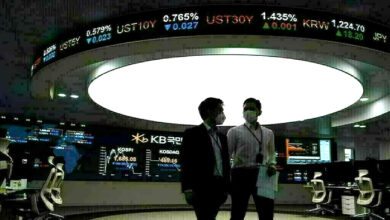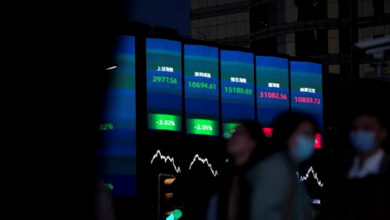Asian stocks fell because of worries about inflation around the world..

HONG KONG – Even though Wall Street initially went up after a good US jobs report, Asian stocks went down on Monday because investors were still worried about inflation and the long-term effects of China’s COVID lockdown policies.
A number of crises, such as rising inflation, rising interest rates, China’s slowing economy, and the war in Ukraine, have hurt the world’s markets.
On Friday, stocks briefly went up on Wall Street after the US Labor Department said that the world’s largest economy added 428,000 jobs in April, which was more than expected. The unemployment rate stayed at a low of 3.6%.
However, the S&P 500 fell 0.6%, while the other two US indices fell 0.5% and 1.5%, respectively.
The losses around the world ended a week that was full of ups and downs. However, markets got a short-term boost when the Federal Reserve raised borrowing costs by 50 basis points, which was the most since 2000.
Diana Mussina/, a senior economist at AMP Investments, said that any short-term outlook is likely to be “messy.”
According to Bloomberg, she wrote in a note, “There may be more downside as markets worry about a significant economic slowdown or “hard landing” and aggressive interest rate hikes.”
The United States has been tightening its money supply very quickly, and the news that China will be putting on even more restrictions has made traders run for the hills.
In the past few months, lockdowns in dozens of Chinese cities, from the manufacturing hubs of Shenzhen and Shanghai to the breadbasket of Jilin, have wrecked supply chains, crushed small businesses, and kept consumers at home.
On Monday, the stock markets in Australia, Singapore, Seoul, and Tokyo all went down, as did the Shanghai and Shenzhen indices in China. There was a public holiday in Hong Kong, so the stock exchange was closed.
Stephen Innes of SPI Asset Management said, “Because of the Ukraine War and China’s economic problems, it is hard for the Fed to raise interest rates quickly without sending the US economy into a hole.”
“People still worry a lot about whether or not central banks have the power to fight inflation effectively. The longer this goes on, the more worried investors will become, which will push stocks down. “
Crude prices went back up on Friday after major oil producers, led by Saudi Arabia and Russia, refused to raise output more than the small amount they had already planned. They did this because they were worried about a shortage of oil because Moscow invaded Ukraine.
But by Monday, it had gone down a little. Innes said this was likely because “broader market anxieties suggest recessionary concerns.”





